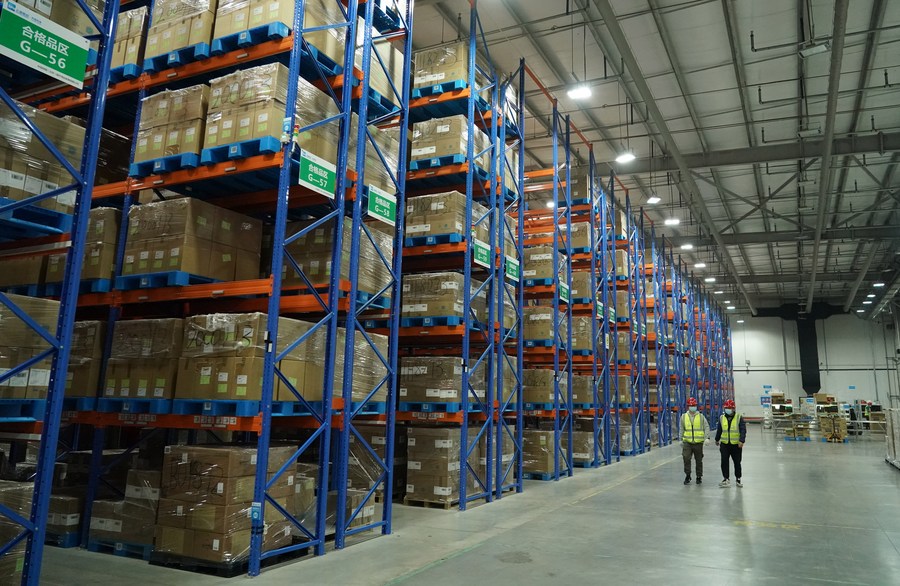China’s State Council recently approved the setting up of cross-border e-commerce pilot zones in 33 cities and regions, which brings the total number in China to 165, covering 31 provincial-level regions across the country, the Beijing-based Securities Daily reported Thursday.

Two workers walk inside a warehouse of imported medicine for cross-border e-commerce in Tianzhu comprehensive bonded zone in Shunyi District, Beijing, capital of China, on March 12, 2021. (Photo: Xinhua)
The new pilot zones include those in Langfang and Cangzhou, Hebei Province, Yuncheng, Shanxi Province and the first cross-border e-commerce pilot zone in Tibet.
The new zones show a trend of expansion from eastern and southern coastal regions to inland areas, and from central cities and provincial cities to second- and third-tier cities, Zhang added.
China began setting up cross-border e-commerce pilot zones as early as 2015 in Hangzhou, Zhejiang Province, in a bid to trial the new business form and digitalize its trade channels.
In these pilot zones, local governments provide a variety of trade services ranging from logistics, payment, law, taxation and customs clearance to facilitate enterprises' cross-border e-commerce businesses.
In recent years, cross-border e-commerce has become an important incentive to the development of international trade. Official data shows China’s cross-border e-commerce imports and exports climbed 18.6 percent year-on-year to 1.92 trillion yuan ($269 billion)) in 2021.
In the first eight months of this year, China’s cross-border e-commerce gained momentum in growth, said Wang Shouwen, vice minister and China international trade representative at the Ministry of Commerce.
(Compiled by Wu Meixuan, edited by Yang Yang)


